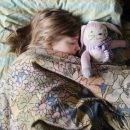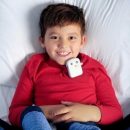
It is estimated that around 5,000,000 people are struggling with adult bed wetting and looking for a solution. Normally we believe that Bed wetting is something that only happens to children who are above 5-6-year-old, but it’s a problem that can hit grown-ups, teens and adults. Adult Bed wetting can also affect self-esteem which can put a strain on personal relationships but it also often indicates that the sufferer has an underlying illness or untreated medical condition. This problem is known as nocturnal enuresis, which is the medical name of the condition.
Some of the reasons it may be happening to you:
- One of the first places to look for causes of urinary incontinence is whether there is a family history of bedwetting.
- Antidiuretic hormone (ADH) imbalance or in simple words Your kidneys produce more pee than normal.
- Bladder problems, such as small capacity or overactive nerves. When there isn’t enough room in your bladder, pee can leak.
- Overactive bladder (OAB). Bladder muscles normally squeeze when you’re ready to pee. In OAB, these muscles squeeze too often or at the wrong times.
- Stress, anxiety, fear, and other psychological issues can cause bed wetting in adults.
- Obstructive sleep apnea, Neurological disorders, Medication side effect, Constipation are some important factors related to adult bed wetting.
- Urinary tract stones or infection, Kidney disease, medication side effect can also be responsible for bed wetting.
What to expect on your routine test:
When you want to find options to help stop bedwetting, it is important to see a Doctor to rule out any other serious problems that may cause adult nocturnal enuresis. you can expect one or more of the following routine tests
- A physical examination
- A neurological evaluation
- Urine tests
- Urologic examination
- Ultrasound of kidneys and bladder
Keep information:
It would be a good idea to keep a record of your bladder activity for a few days before your appointment with your doctor. Keep track of the following information.
- How much urine was voided
- Time your accidents usually occur
- What and how much you drank before bed.
- Types of fluids ingested and whether they contain caffeine or alcohol.
- Any other symptoms you’ve had
- The number of dry nights vs the number of wet nights
Treating Adult Sleep Nocturnal Enuresis:
- Set fluid intake limitations mostly before bed time.
- Reduce or cut out drinks with caffeine and alcohol from diet
- Use an alarm clock to wake you up at regular times during the night so you can use the bathroom.
- Protect your bed with special mattress covers
- Medication can often control bedwetting and may provide a solution to the adult bed wetting problem.
- Try a bed wetting alarm system. For children attach the sensor to your child’s underwear. The alarm will alert as soon as you start to wet the bed. For adults and teens there is Bedside bed wetting alarm that comes with the mat system that you can put on your bed under the sheet and the alarm is kept on the side table. The mat is a sensor that detects urine and alerts the user. The bed wetting alarms have very high success rate that help stop bedwetting in children teens and to monitor adult bed wetting.








